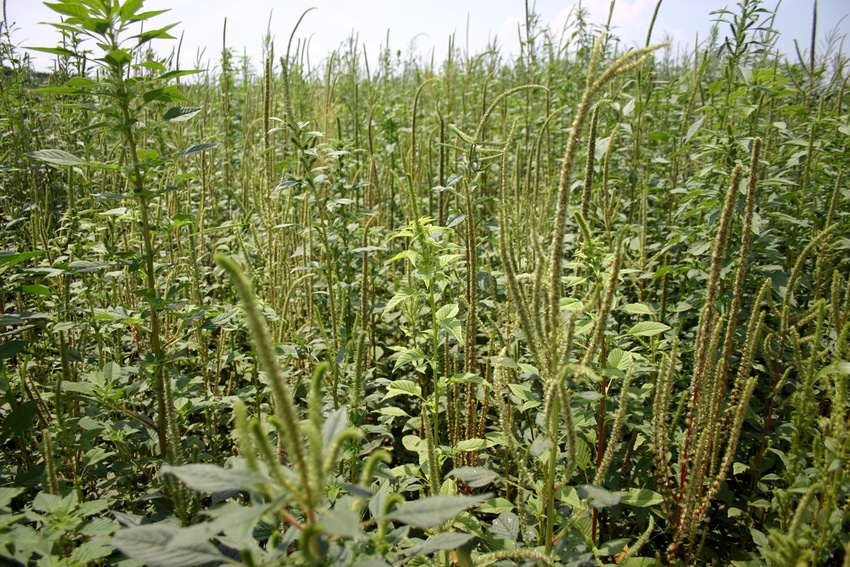
Glyphosate-resistant pigweed has become the driving force in most of the weed control programs throughout the Delta. But other glyphosate-resistant weeds are starting to crop up too.While it does not appear that the resistance issue is going away, in time resistance management will become second nature and as much a part of farming as maintaining fertility levels and soil structure, says University of Arkansas weed scientist Ken Smith.
March 21, 2012

Attendance at the winter meetings has been good and the discussions pointed with lots of questions. But the meeting season is winding down, and it is now time to quit talking and start doing. Hopefully, some of the things we discussed in the meetings will help with the doing.
The discussions and questions at meetings are the best part for me because it helps to understand what farmers are thinking and what problems they are facing in their weed control programs. One question posed after the meeting a few days back may be worth passing on. Following my program on weed control that was focused mainly on glyphosate-resistant pigweed, a farmer said that all we ever talk about is resistance and wondered if we were ever going to get past this issue.
I am not exactly sure what my response was at the time, but likely it was more than he wanted to know. However that question keeps echoing in my mind as future research plans are made, and as we attempt to look down the road to what is next in weed control innovations.
Few have ever accused me of being visionary and certainly not I. Some proof of this is the fact that in the university system, we have developed enough 5- and 10-year plans to fill a pickup truck and none have been valid more than six months. Throughout this past winter, Ford Baldwin has written some very interesting articles highlighting the evolution of weed science during his career. Each change came with its own set of challenges. Most came with a certain amount of lag time between introduction and adoption, and usually the final adopted use of a product or practice was somewhat different than the original concept - further proof that if you give it to a farmer, he will figure out a way to make it work.
When Ford writes his articles for the Delta Farm Press after another 40 years, he will surely have a discussion about herbicide resistance, and how farmers first began to truly adopt holistic resistance management programs. We all got caught up in the convenience, effectiveness, and efficiency of the Roundup system in the early 2000’s.
The Kool-Aid was good and addictive. Of all the innovations, this was the most bold and had the most impact on our weed control techniques and psychology. When horseweed showed us the first chink in the glyphosate armor, we complained about the added cost. But pigweed has become the driving force in most of the weed control programs throughout the Delta. Some saw it coming, others claim to have been surprised. Those of us watching this from the research side, saw pigweed problems on the horizon, but never imagined how severe or quick the problem would develop.
We were all overwhelmed by magnitude of the pigweed populations and the speed at which they spread. In 2004, the University of Arkansas weed science team made a conscious decision to focus our resources on resistance with pigweed being the No. 1 issue. Since that time we have learned a lot and will continue to learn as new information is developed. However, while we have been watching horseweed and pigweed back on the farm, more than a dozen other glyphosate-resistant weeds have cropped up.
So, it doesn’t appear that the resistance issue is going away, and the immediate “quick fixes” on the horizon are more technology based on 50+ year old chemistry. However, resistance management will become second nature and as much a part of farming as maintaining fertility levels and soil structure.
We will shift our discussions from the importance of rotating chemistry, mixing technologies, and managing soil seedbanks to improved techniques to accomplish these goals. Hopefully, the next Kool-Aid will not be as intoxicating as the last.
You May Also Like



